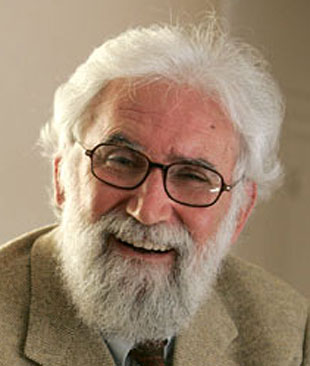Leonardo Boff was born in Concórdia, Santa Catarina, Brazil, in 1938. He joined the Order of the Franciscan Friars Minor in 1959 and received his doctorate in Philosophy and Theology from the University of Munich — Germany, in 1970. For 22 years he was the professor of Systematic and Ecumenical Theology at the Franciscan Theological Institute in Petrópolis. He has served as a professor of theology and spirituality in various centers of higher learning and universities in Brazil and the rest of the world.
He was present in the first reflections that sought to articulate indignance toward misery and marginalization with discourse, which later generated the Christian faith known as Liberation Theology. He has always been an ardent of the human rights cause, helping to formulate a new Latin American perspective on human rights with "Rights to Life and the ways to maintain them with dignity."
From 1970 until 1985 he participated in the editorial council of Editora Vozes. During this time he participated in the coordination and publication of the collection, "Theology and Liberation" and the entire edition of the works of C. G. Jung. In 1984, he was submitted to a process by the Sacred Congregation for the Doctrine of the Faith, former Holy Office, in the Vatican. This was due to his theses linked to liberation theology exposed in his book Church: Charism and Power. In 1985 he was condemned to "obsequious silence' and was removed from his editorial functions and suspended from religious duties. Due to international pressure on the Vatican, the decision was repealed in 1986, allowing him to return to some of his previous activities.
In 1992, under renewed threats of a second punitive action by authorities in Rome, he renounced his activities as a priest and "promoted himself the state of laity": "I changed trenches to continue the same fight." He continues as a liberation theologian, writer, professor, widely hear conference speaker in Brazil among other countries, also as an adviser of social movements of liberating popular matrix, as the Landless Movement and the Base Ecclesial Communities (CEBs), among others.
Boff has also been honored with various awards in Brazil and the rest of the world, for his struggles on behalf of the weak, the oppressed and marginalized, and human rights. On December 8, 2001 he was honored with the alternative Nobel prize, "Right Livelihood Award" in Stockholm, Sweden.
In 1993 he was selected as professor of Ethics, Philosophy of Religion and Ecology at the State University of Rio de Janeiro (UERJ). He presently lives in Jardim Araras, an ecological wilderness area on the municipality of Petrópolis, Rio de Janeiro. He shares his life and dreams with the defender/educator of Human Rights from a new ecological paradigm, Marcia Maria Monteiro de Miranda. He is the author of more than 60 books in the areas of theology, spirituality, philosophy, anthropology, and mysticism. Most of his works have been translated into the main modern languages.
Read For:
- Theological understandings of justice issues and the dignity of the poor
- Salient presentation of the need for eco-spirituality
- Dramatic overviews of new paradigms needed for a world in chaos
- Thought-provoking Christian reinterpretations of Jesus, scripture, and tradition
